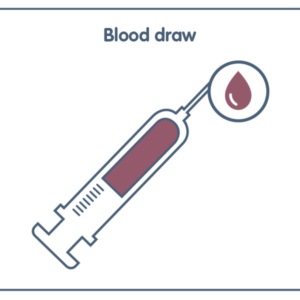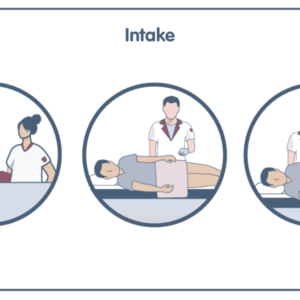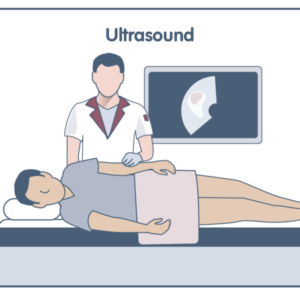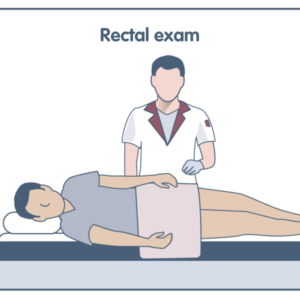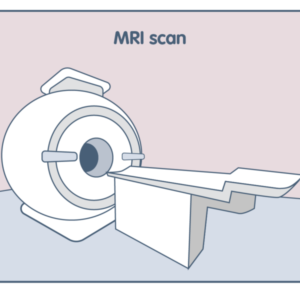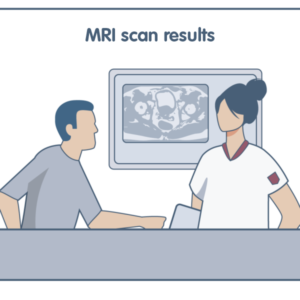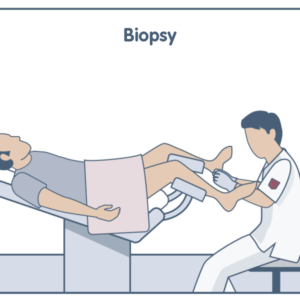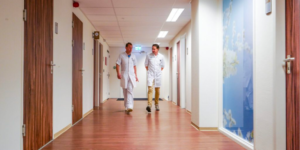Prostate cancer diagnostics

What is prostate cancer?
To examine or not?
What to expect from diagnostics?
You may visit this page because you were told that your PSA levels are elevated, and your general practitioner has referred you for further diagnostics. Elevated PSA levels do not necessarily indicate prostate cancer. PSA elevation can also be caused by aging, inflammation in the prostate, or a benign condition. Based on a preliminary examination and risk assessment, we can determine which people are at increased risk and will need further diagnostics.
Prostate-specific antigen (PSA) is a protein produced by the prostate. PSA levels can only be measured in men and are done with a simple blood test. Elevated PSA levels may signify the presence of prostate cancer, but the elevated levels could also be caused by something harmless.
We cannot draw that conclusion based solely on your PSA levels. Normal PSA levels range between zero and four micrograms per liter of blood. Higher levels are considered elevated. This PSA increase can also be related to aging, prostate inflammation, or a benign condition. Elevated PSA levels can indicate prostate cancer, but not necessarily. Additional diagnostics will provide more clarity.
In the case of a slowly growing form of prostate cancer, the tumor is still small and grows very slowly. In this situation, active treatment is not necessary. However, you will remain under the care of our Center. This is what we mean by active surveillance.
No, definitely not. It is the most common form of cancer in men aged 55 and older. In 2020, around 13,000 men in the Netherlands were diagnosed with prostate cancer. Of all the men diagnosed with cancer, 21% had prostate cancer.
What we know so far is that men of African origin and men with first-degree relatives who have passed away from prostate cancer have a significantly higher risk of developing the disease themselves. Based on scientific research, to which our Center also contributes, we are gaining more insight into the risk factors.
Unfortunately yes. It is a myth that nearly all older men get prostate cancer and that no one dies from it. We still see too many cases in which people were diagnosed too late when the cancer has already spread. Early diagnosis and more knowledge about risk factors should help us better determine which men need to be screened and when.
There may be a hereditary predisposition and an increased risk. We look at prostate cancer in first- or second-degree relatives: father, son, brother, grandfather, and grandson.
During a biopsy, the skin between your scrotum and anus and the tissue between the skin and the prostate are numbed with a thin needle. Despite the anesthetic, the biopsy, which involves removing small pieces of tissue, can feel sensitive. It helps to try to relax during the procedure.
No, you don’t need to fast or have an empty stomach before your biopsy. You can eat and drink normally.
Some people may feel light-headed after the procedure. We do not recommend driving or biking after the procedure. We recommend that you bring someone with you who can take you home.
You will receive your results within one week, usually during a video call, so you won’t need to travel to the NKI Center for Early Diagnostics again. You will most likely receive the appointment confirmation for this video call after your biopsy, by email and in your app.
You can find more information about the study on prostate cancer and nutrition in this brochure.

